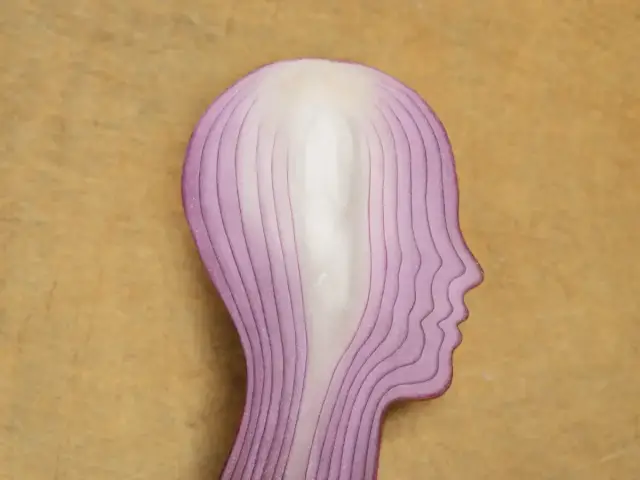While I’m not a psychiatrist and I do not prescribe medication, I am intrigued by psychiatry and pharmacology. Perhaps I would work as a psychiatrist or pharmacologist if I weren’t so in love with serving traumatized individuals and families using EMDR therapy and emotionally focused therapy. One particular fascination of mine is pharmaceutical breakthroughs. As I have researched, it turns out they often arise unexpectedly and accidentally.
Some of the most transformative innovations, including trazodone, finasteride, Viagra, and penicillin (even Ozempic and Dipping Dots) were discovered accidentally or serendipitously during research unrelated to their current, most germane use-case. These discoveries not only revolutionized medicine (excluding Dipping Dots) but also highlight the importance of curiosity, creativity, spontaneity, open-mindedness, and flexibility, not only in research but in general. These qualities are also linked to resilient Mental health long-term (Seligman, 2002).
I believe that exploring a few of these cases can reveal valuable lessons about the nature of innovation, healing, Mental health, strong and healthy relationships, and the potential hidden in unintentional and unexpected outcomes.
Penicillin: The Birth of Antibiotics
In 1928, Alexander Fleming accidentally discovered penicillin, the world’s first antibiotic, when he returned to his lab after a vacation. Fleming noticed that a petri dish containing Staphylococcus bacteria had been contaminated by a mold and that the bacteria surrounding the mold had been killed. This finding, initially considered a curiosity, eventually led to the development of a medication that has saved millions of lives. Penicillin’s discovery was transformative because it provided an effective treatment for bacterial infections that were often fatal, such as pneumonia, sepsis, and syphilis. The process of turning penicillin into a widely available medication involved the efforts of other scientists, such as Howard Florey, Ernst Boris Chain, and Norman Heatley, who developed methods to mass-produce it during World War II.
Lessons for Mental health:
- Keep an open mind: Fleming’s willingness to explore an unexpected observation allowed for the discovery of a new class of medications.
- Collaborative efforts matter: Advancing penicillin from a lab curiosity to a medical revolution required teamwork and interdisciplinary research.
Viagra: From Heart Medication to Erectile Dysfunction Treatment
Viagra was originally developed in the late 1980s by scientists at Pfizer to treat angina, a type of chest pain caused by reduced blood flow to the heart. During clinical trials, the medication showed limited efficacy for angina but produced an unexpected side effect: Participants reported improved erectile function. Recognizing its potential, Pfizer shifted its focus, and in 1998, Viagra became the first oral medication approved for erectile dysfunction. This unexpected pivot turned Viagra into one of the most profitable medications in history, transforming societal discussions around sexual health and significantly improving the quality of life for millions.
Lessons for Mental health:
- Adaptability: Pfizer’s ability to recognize and pursue the unexpected benefits of sildenafil showcases the importance of flexibility, not only in scientific endeavors but in general.
- Destigmatizing health issues: Viagra’s success helped normalize conversations around erectile dysfunction, encouraging a more open approach to addressing sensitive health concerns.
Trazodone: From Antihypertensive to Antidepressant
Trazodone, developed in the 1960s by an Italian pharmaceutical company, was initially intended as a treatment for hypertension (high blood pressure). During trials, researchers noticed its effects on mood and sleep rather than on blood pressure. This observation led to its reclassification as an antidepressant. Today, trazodone is widely prescribed not only for depression but also for its sedative properties, making it a common choice for treating insomnia. Unlike traditional antidepressants, trazodone affects serotonin receptors in a unique way, leading to fewer side effects for some patients. Its discovery underscores the importance of recognizing secondary effects during drug development.
Lessons for Mental health:
- Repurposing medications: The reclassification of trazodone exemplifies the value of revisiting the potential uses of existing drugs.
- Patient-centric insights: Observing and listening to patient responses during trials can reveal unintended but beneficial effects.
Unifying and Summarizing Takeaways
1. Serendipity: Many breakthroughs occur outside the intended scope of research, emphasizing the role of chance in innovation. However, recognizing and leveraging these opportunities requires trained minds and curious perspectives.
2. Flexibility: Scientific research often follows strict hypotheses, but these examples demonstrate the importance of adapting to unexpected findings. Institutions that foster adaptability can maximize the impact of accidental discoveries.
Creativity Essential Reads
3. Interdisciplinary Collaboration: Transforming an initial discovery into a widely used medication often involves collaboration across multiple fields, including biology, chemistry, medicine, and engineering.
4. Expanding Applications: Medications initially developed for one condition may have broader uses. For instance, research on sildenafil has expanded to include treatments for pulmonary hypertension.
5. Human Impact and Accessibility: Accidental discoveries like penicillin have saved countless lives, underscoring the need to prioritize accessibility and ethical distribution when developing life-changing medications.
Conclusion
I meet my wife at an airport when the least thing I was looking for would have been a life partner.
The accidental discoveries of trazodone, Viagra, penicillin, and others highlight the unpredictable nature of not only scientific progress, but our lives in general. I think these cases remind us that breakthroughs often lie beyond the boundaries of our immediate goals and require an open-minded, creative, spontaneous, and flexible approach to not only pharmaceutical research but also Mental health and our lives in general. Perhaps this is why it is so vital for children to play; similarly, it’s vital for us to have spontaneous, unstructured time and be open to unexpected outcomes and possibilities.
Many of the most important inventions of our time we discovered accidentally. By fostering curiosity, embracing serendipity and spontaneity, and encouraging collaboration, the scientific community and the world at large can continue to uncover transformative innovations that improve and enhance our lives worldwide.













